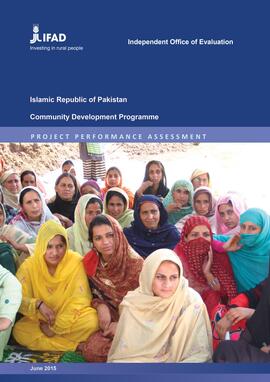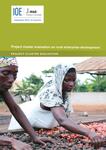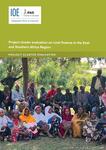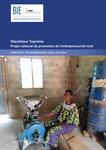Page Header
Community Development Programme
Overview
The programme covered Azad Jammu and Kashmir in Pakistan between 2004 and 2012. Its achievements are most visible in terms of improving access of rural communities to social and economic infrastructure, and strengthening the overall capacity of community organizations and the skills of their individual members. The programme impact is most pronounced in the area of human and social capital and empowerment. Despite important steps taken and contributions made by the Government of Azad Jammu and Kashmir to sustain the benefits of the programme, one of the main issues concerning sustainability is that the participatory approach has been "project-centred" and has not been mainstreamed into government's regular development planning, budgeting and service delivery. Programme implementation progress in the initial years was hindered not only by the 2005 earthquake but also by various implementation and management issues, in particular, a continual turn-over in the programme director's position. However, after the mid-term review, the programme made reasonable progress due to a number of factors, including stability of leadership positions in the Programme Management Unit and direct supervision and closer follow-up by IFAD.Report Details
| Year Published | |
| Type | |
| Joint | No |
| Partner/s | N/A |
| Consultant name | |
| Agency Focal Point | Fumiko Nakai |
| Focal Point Email | f.nakai@ifad.org |
| Managed by Independent Evaluation Office | Yes |
| Country/ies |
YOU 'RE READING
Community Development Programme









